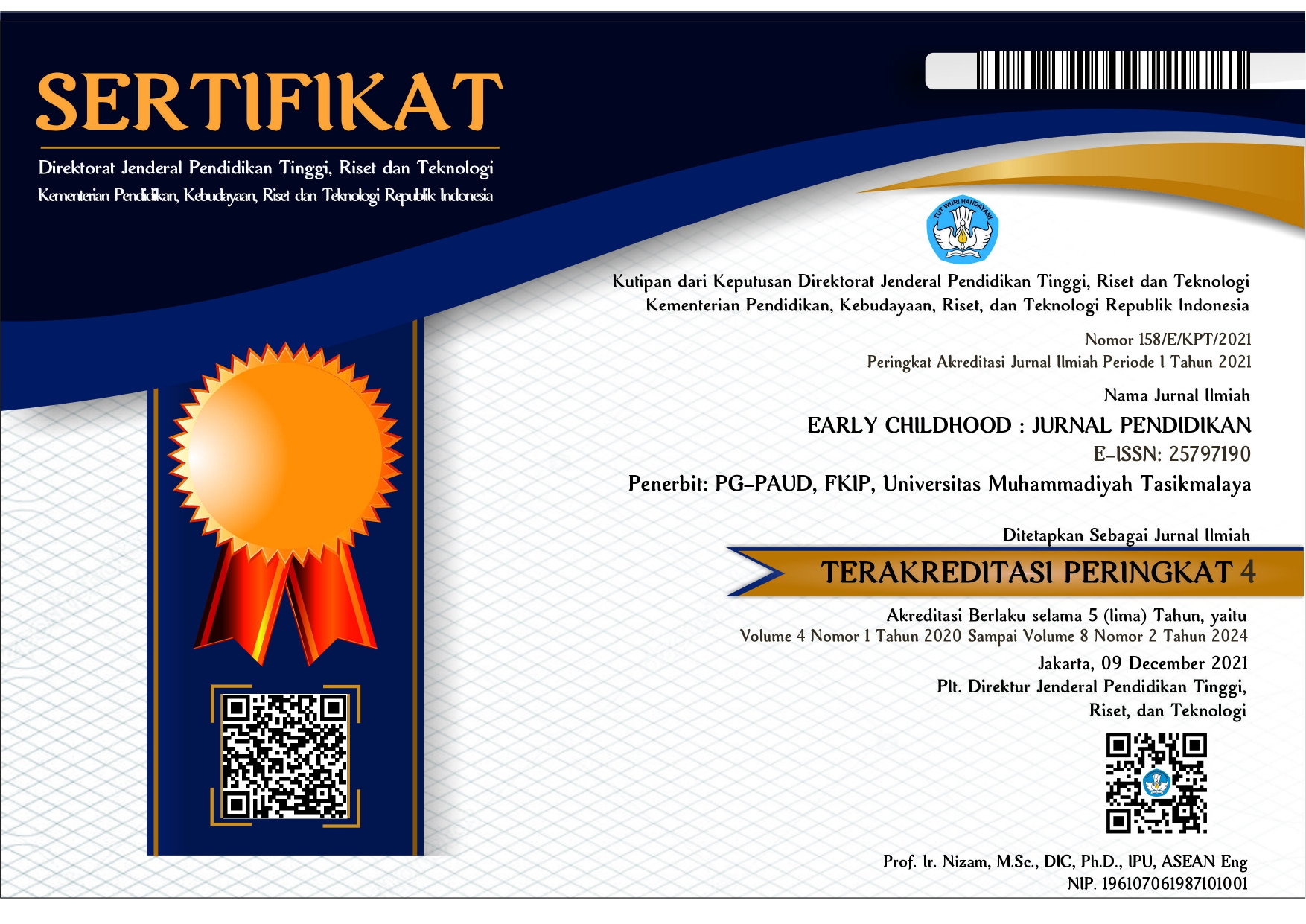MENANAMKAN SIKAP BERSAHAJA PADA ANAK USIA DINI DENGAN PEMBIASAAN MENABUNG
DOI:
https://doi.org/10.35568/earlychildhood.v3i1.430Keywords:
Keywords: early childhood, modesty, saving habitsAbstract
ABSTRAK
Pendidikan membangun karakter merupakan proses panjang yang harus dimulai sejak masa kelahiran anak walaupun baru dirasakan dampaknya setelah anak-anak tersebut tumbuh dewasa. Pendidikan karakter sejak dini merupakan pondasi awal dalam membentuk karakter di masa mendatang. Sikap bersahaja harus ditanamkan pada anak mulai sejak dini karena untuk memilah dan memilih antara apa yang dibutuhkan dan tidak dibutuhkan. Hidup bersahaja banyak memberi manfaat bagi kehidupan karena dapat memperteguh hati untuk selalu bersyukur atas apa yang Allah berikan dan hidup akan lebih berarti bagi sesama. Salah satu membiasakan anak usia dini bersahaja yaitu dengan cara menabung. Menabung berarti menyisihkan sebagian uang yang dimiliki untuk disimpan dalam jangka waktu tertentu. tujuan orang-orang dalam menabung pada umumnya sangatlah berbeda-beda tapi intinya adalah untuk memenuhi ekspektasi atau harapan di masa depan. Dengan menggunakan metode kualitatif, maka penelitian yang berupa kata-kata dan gambar dalam pengumpulan data-data, data tersebut mengandung makna yakni makna yang sebenarnya atau suatu nilai yang baik. Menanamkan sikap bersahaja pada anak usia dini dengan cara pembiasaan menabung.
Kata Kunci : anak usia dini, sikap bersahaja, pembiasaan menabung
ABSTRACT
Character building education is a long process that must be started from childbirth even when it is felt after the children grow up. Early character education is an early foundation for character building in the future. Simple attitudes should be instilled in children starting early because to sort and choose between what is needed and not needed. Simple life provides many benefits for life because it can strengthen the heart to always be grateful for what God gives and life will be more meaningful to others. One of the habitual early childhood that is by way of saving. Saving means setting aside some of the money held for a certain period of time. the purpose of the people in saving in general is very different but the point is to meet expectations or expectations in the future. By using qualitative methods, the research in the form of words and images in the collection of data, the data contains the meaning of the true meaning or a good value. Embedding a simple attitude in early childhood by way of saving habituation.
Keywords: early childhood, modesty, saving habits
Downloads

Downloads
Published
Versions
- 2020-07-14 (2)
- 2019-05-31 (1)
Issue
Section
License
Copyright Notice
Early Childhood Journal is an Open Access Journal. The authors who publish the manuscript in this journal agree to the following terms:
This work is licensed under a Creative Commons Attribution-NonCommercial-ShareAlike 4.0 International License.
Privacy Statement

The names and email addresses entered in this journal site will be used exclusively for the stated purposes of this journal and will not be made available for any other purpose or to any other party. Early Childhood allows the author(s) to hold the copyright and to retain publishing rights without restrictions.




